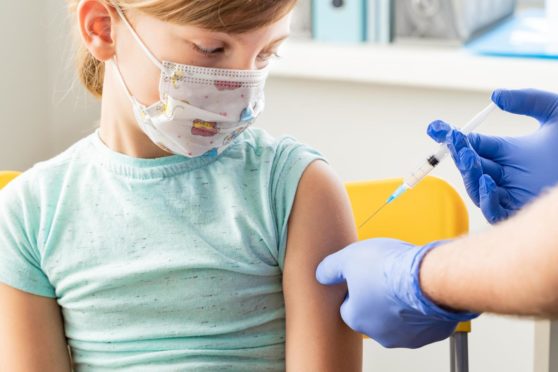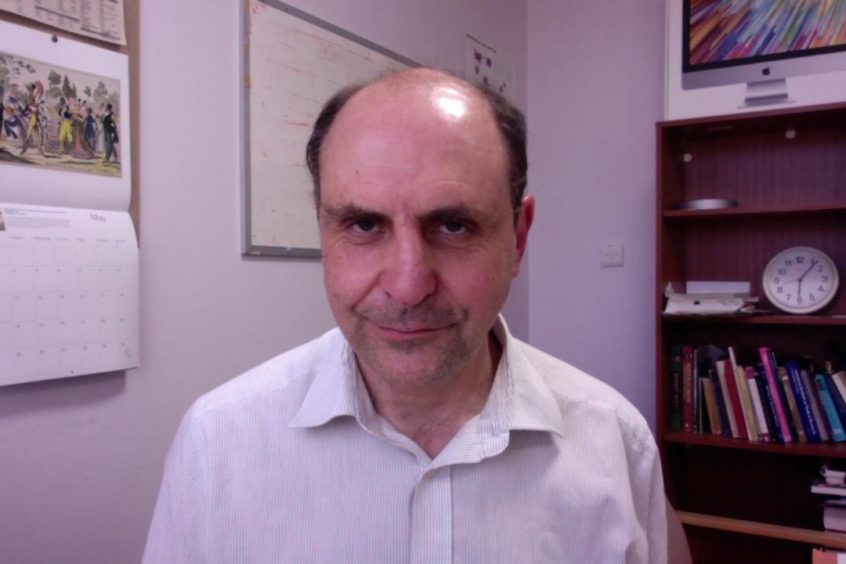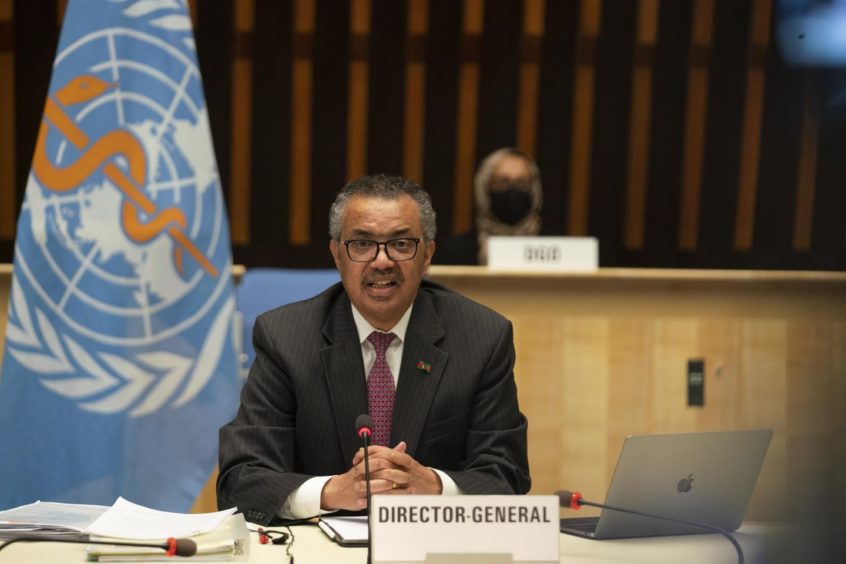Should our children be vaccinated to protect them from Covid? It’s a thought that’s most likely passed through the minds of most parents as Scotland’s vaccination programme continues to roll out.
However, it’s not just lingering on the minds of parents, but a question which is currently being considered by the UK’s Prime Minister too.
It is understood medical experts are soon to offer Boris Johnson a number of different options for vaccinating children.
But what might those options be?
Aberdeen University’s chairman in applied medicine, Professor Mark Vickers, said he believes there are three potential ways forward.
“There’s various scenarios here,” he said.
“You can either vaccinate all children, vaccinate children at a higher risk – or those with high-risk parents, or you could say, well, don’t vaccinate children at all.
“I believe all three are valid options to consider, and currently there are no known consequences to children taking the vaccine.”
The European Medicines Agency has already authorised the use of the Pfizer vaccine for use in children as young as 12.
In the US, 600,000 children aged between 12 and 15 have been vaccinated against Covid, with some calls for younger children to be immunised too.
‘Children’s immune systems are basically set up to deal with viral infections’
While some countries are already pressing ahead and vaccinating children, it’s known that the risk of children contracting Covid, or becoming severely ill with the virus, is low.
With this in mind, it begs the question, is it worth vaccinating children in the UK?
“It does beg the question, very much so,” said Professor Vickers.
He said: “Children’s immune systems are basically set up to deal with viral infections.
“While children can get symptomatic Covid-19, they get it a lot less frequently and severely. Although, we do know they can get an inflammatory syndrome.
“My guess is, if Covid-19 is circulating around in 30 years – which it will be because we won’t get rid of this virus now – it’ll affect young children in the way that ordinary coronaviruses do now – they’ll deal with it, and we’ll hardly get severe disease in adults.”
Vaccine trials in children
Trials in vaccinating children against Covid are already underway around the world, but according to an article published by the BMJ, with so few children contracting the virus severely, these trials are not powered to measure decreases in Covid infections.
Instead, the trials examine safety, antibodies and the immune response in children.
Children as young as six are taking part in a UK trial to find out how effective the Oxford/AstraZeneca vaccine is for young people, with babies aged around six months old taking part in other trials around the world.
Despite the ongoing trials, Professor Vickers stated it’s hard to know whether or not rolling out vaccinations to children will prove to be beneficial.
He said: “If you do give the vaccination to a child, I don’t think you could look the parent in the eye and say ‘your child will definitely benefit from this vaccination’.
“We’ll never be able to say that, I don’t believe. Or we won’t know for many months to come.”
A Scottish Government spokesman said while trials are ongoing, current guidance from the Joint Committee on Vaccination and Immunisation (JCVI) advises of vaccinations for 16 and 17-year-olds only, who fall into groups one to nine of their vaccine deployment plan.
He said: “We are providing the vaccine to people on a priority basis as set out by the independent expert clinicians and scientists on the Joint Committee on Vaccination and Immunisation (JCVI).
“Current JCVI advice does not cover vaccination in those under 18 years old. So far only 16 and 17 years olds in groups 1-9 are covered.
“Clinical trials are currently underway for vaccination of children and young people, and the JCVI is currently reviewing vaccinations for 12-15 year olds.
“We will continue to engage with vaccine developers and the JCVI, so that if trials are successful we are ready to vaccinate younger age groups, if that is what the clinical and scientific evidence supports.”
Prioritising the countries in need
Another benefit which could come from not vaccinating children, is the potential to help other poorer countries.
Professor Vickers explained: “There’s a lot of debate around this topic. In the background here, for every vaccine you give to a child in the UK… you can’t send one to the third world.
“A lot of people are saying ‘rich countries have had their share, why are they chasing down minuscule risks in children when we’re not even sure they’ll benefit from the vaccine?’
“A vaccine not used in a child here, for example, could be more beneficial to an elderly person in India.”
Director general of the World Health Organisation, Tedros Adhanom Ghebreyesus, has stressed the importance of countries holding back on vaccinating children. Instead, the WHO leader has urged countries to donate vaccines to COVAX.
COVAX is led by Gavi, the Coalition for Epidemic Preparedness Innovations (CEPI), WHO, and supported by delivery partner UNICEF. Its aim is to accelerate the development and manufacture of Covid-19 vaccines, and to guarantee fair access for every country in the world.
Speaking at a virtual conference last month, the head of WHO said: “In a handful of rich countries, which bought up the majority of the vaccine supply, lower risk groups are now being vaccinated.
“I understand why some countries want to vaccinate their children and adolescents, but right now I urge them to reconsider and to instead donate vaccines to COVAX.
“Because in low and lower-middle income countries, vaccine supply has not been enough to even immunize health and care workers, and hospitals are being inundated with people that need lifesaving care urgently.
“At present, only 0.3% of vaccine supply is going to low-income countries.
“Trickle down vaccination is not an effective strategy for fighting a deadly respiratory virus.
“India remains hugely concerning, with several states continuing to see a worrying number of cases, hospitalizations and deaths.”












